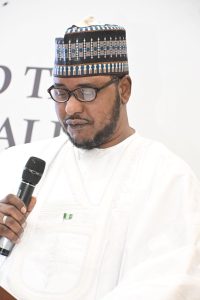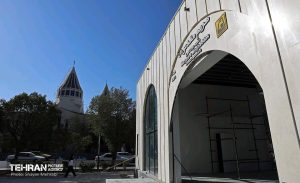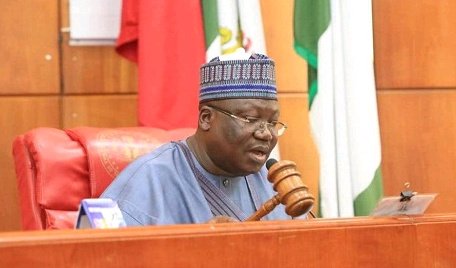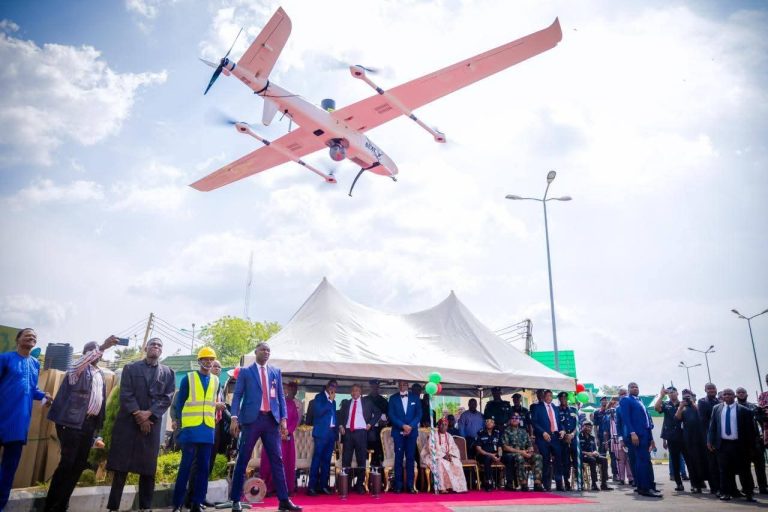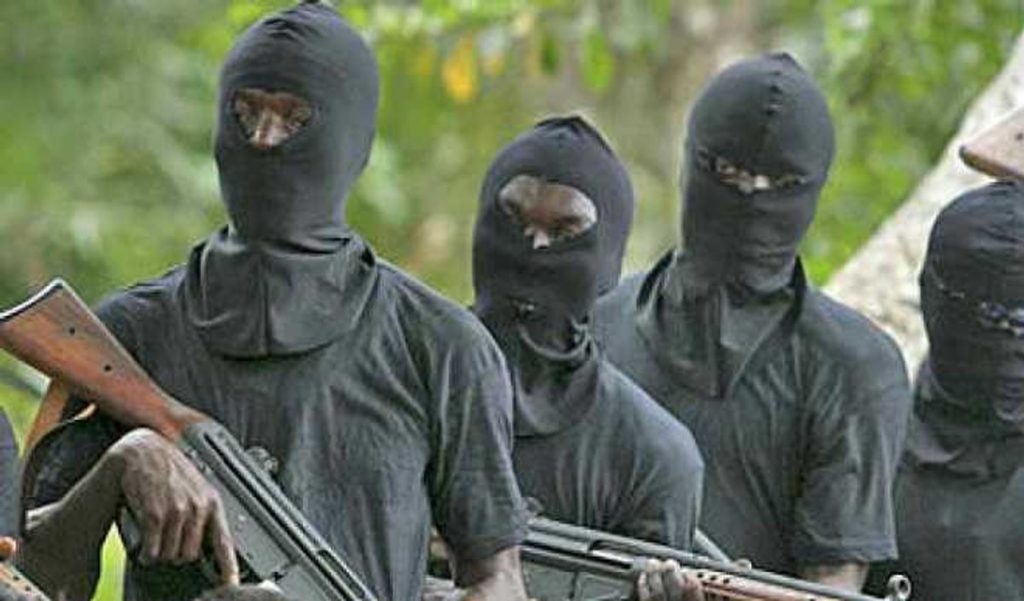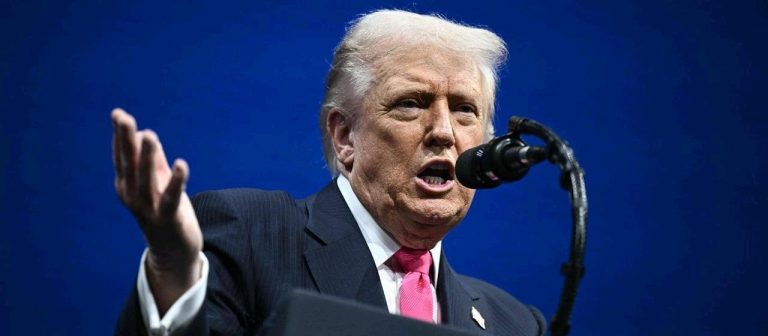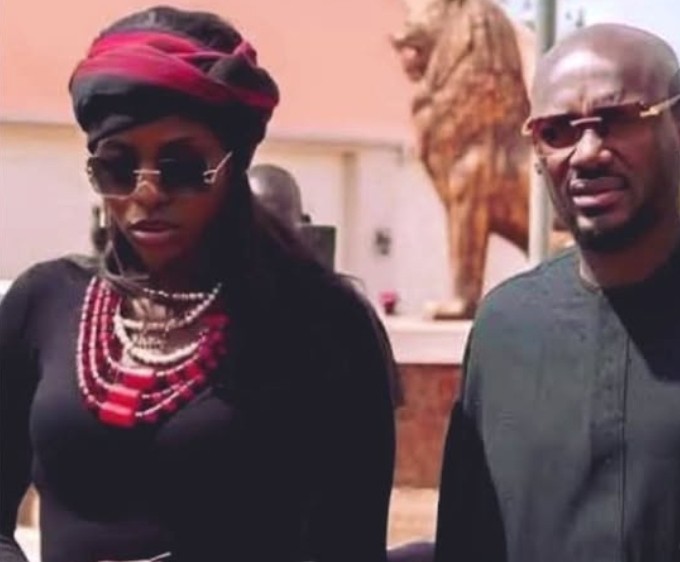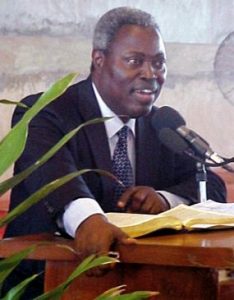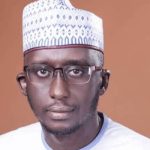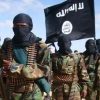
NIGERIA IS POOR and Must Keep Borrowing Senate President Lawan DESPITE Warnings From Experts.
Nigeria’s external debt is considered to be the biggest in sub-Saharan Africa and it has become a major source of concern for Nigerians. But not so much for Nigerian politicians.
While the country has continued to borrow despite warnings from experts and the international community, the President of Nigeria’s Senate, Ahmed Lawan, few hours ago said the country will continue to borrow and even made a case to justify it.
Recall the heroics of former President Olusegun Obasanjo when he successfully helped the country to exit the huge debt burden of the Paris Club.
The relief turned out to be temporary as, by June 2015, when the President Muhammadu Buhari government newly came to power, the country’s debt had again jumped to $63.8 billion, representing the country’s highest debt profile since 2007.
By September 2020, the Debt Management Office (DMO) revealed that the country’s total public debt stock stood at $84.574 billion.
DMO is the government agency established to centrally coordinate the management of national debts.
It explained that the Debt Stock was made up of the domestic and external debt stocks of the Federal Government, the 36 State Governments and the Federal Capital Territory.
A breakdown of the public debt stock showed that 37.82 per cent was external, while the balance of 62.18 per cent was domestic.

Nigeria Must Keep Borrowing – Lawan
Senate President Lawan on Thursday insisted that borrowing is the only way the country can fund its infrastructural needs.
Speaking with journalists after meeting President Muhammadu Buhari at the Aso Rock villa on Thursday, Lawan said Nigeria’s options to raise funds are “very limited”.
READ: EXPOSED!!! How Police Tracked Chidinma Using Scientific Method
The Senate President said the country is “poor”, and increasing tax to raise more revenue is not an option for now.
“Our options are really very limited as a country. First, we don’t have the necessary revenues. Nigeria is poor; we shouldn’t deceive ourselves,” he said.
“Nigeria is not rich, given the circumstances we live in, given the challenges we have. Our resources are so low; our revenues are so low, and therefore, the option of not doing anything, just to sit — because we have no money, we shouldn’t go for infrastructure development — is not even an option worthy of consideration.
“You cannot keep the economy stagnant. Two, you cannot, in my view and judgement, tax Nigerians further for you to raise the money for infrastructure development. Other countries do that, but we have serious situations across the country, so you cannot put taxes on people.
“The other option is public-private partnership. You need to create the environment to attract investors to come into our country; because of the security challenges we face today, not many investors would like to come to Nigeria.
“In fact, even those inside Nigeria may not like to invest properly in this sector of infrastructure development.
“So, the only option left is for us to borrow — borrow responsibly, utilise prudently and economically, and ensure that the projects are self-sustaining so that they can pay back the loans, so that the Nigerian economy will benefit from the implementation of such infrastructure development.”
The senate president added that all hands must be on deck for the country’s economy to develop for the good of all.
Lawan said the national assembly will be “stiff” with the executive, if the loan requests approved by the lawmakers are mismanaged.
“When we approve loans, they also, at their own level of the executive level, are able to be responsible because when we detect anything going wrong, we will not show any understanding. We will be stiff; we’ll be rigid,” he said.
He said: “Whenever we have to approve any loan, we have to insist on the details of what projects will be funded by those loans. We’ll have to look at the conditions that are attached to the loans. They must be favourable conditions before we approve and we will be up to date with our oversight, to ensure that what we have approved is directly deployed and on those projects that we have also approved for implementation.”

Is Nigeria Truly Broke?
The evidence that Nigeria is broke lies somewhere in the admission by the Minister of Finance, Budget and National Planning, Zainab Ahmed: “What (Nigeria has) is a revenue problem. Our revenue (projection was) by (mid-2019 only) 58 per cent (realised).” Government’s piling up debts is just stating the obvious.
Nigeria’s debt is now $81.27bn, or N24.947tn. Between 2002 and 2019, EXIM Bank alone loaned $6.5bn, or N1.9tn, to Nigeria, for rail, road, airport, gas power plants, security and ICT projects. Nigeria is about to take another $3bn, or N918tn, loan from the World Bank.
The dip in Nigeria’s foreign reserves, from $41.70bn at the beginning of October, to $40.50bn, at the end, is a result of outflows exceeding inflows. The Excess Crude Account that was $20bn by January 2009, took an inglorious dip to a measly $324m by October 2019 ending.
Nigeria, with an expected Gross Domestic Product of $500bn by 2019 ending, and sometimes disputed 200 million population, has a disgraceful per capita income of $2,208. Nigerians, from the richest country in Africa, are amongst the poorest in Africa.
The usually honest National Bureau of Statistics has taken the trouble to inform the world that contrary to the 70 million hitherto announced by ActionAid, it is actually 90 million Nigerians that are living in poverty.
Economists define poverty as the absence of comfort, and inadequate supply of necessities of life. It is sometimes defined as the point where deprivation makes it impossible to maintain bodily and physical efficiency. In numerate terms, it has been variously put at living below $1.50, $2, or $2.50, per day.
How Broke Is Nigeria?
Nigeria is so broke, the country is borrowing to service debt, this is according to Mr. Eze Onyekpere, Lead Director of the Centre for Social Justice (CSJ).
READ: See Photos of the New Electronic Toilet WC That Cost A Whopping N350,000
Onyekpere explained that continued borrowing to service old debt is grossly inimical to national development, and would only leave behind a bleak future for the younger generation.
“Nigeria is broke, which is why we are experiencing all forms of financial crises, such as delayed salary payments, strikes, and other challenges. All that the government is doing is borrowing from Peter to pay Paul,” he said.
He noted that Nigeria couldn’t expect to make meaningful progress in terms of national development if it continued the current spree of borrowing to pay back old debts.
Country Director of ActionAid Nigeria, Ene Obi, said an estimated 82.9 million Nigerians are currently living below the poverty line, in a largely informal economy, with little access to basic amenities.
Obi explained that tax to Gross Domestic Product (GDP) rate in Nigeria and some other African countries remains low, affecting small and medium scale businesses, which are mainly driven by young people and women. So, government incentives, stimulus, and credit facilities must target this group of people, to get the economy back on track at the earliest possible time to tackle increasing poverty, unemployment, and inequality.
Obi said low tax revenue trend is among factors that necessitated the eventual Report of the High-Level Panel on Illicit Financial Flows (IFFs) from Africa, commissioned by the United Nations Economic Commission for Africa (UNECA) in 2011, which estimated that more than $50b leaves African shores yearly.
She explained that global economic disruption, occasioned by the COVID-19 pandemic also brought into sharper focus the impact of decades of inadequate investment in public services infrastructures, such as health and education.
She said: “In the last year, the government has undertaken various reforms to strengthen its tax revenue base. For instance, the Senate passed the Financial Bill, which among other provisions raised Value Added Tax (VAT) from 5% to 7.5%, the CBN new directives for taxing transactions, stamp duty charges, and taxing the digital economy, among others.
How Nigeria Managed To Exit Debt Before Buhari

Former President Obasanjo started the process in his first term by trying to reschedule Nigeria’s debt several times. But In spite of the rescheduling and refinancing by creditors who were either members of the Paris Club (governments), London Club (banks) or independent creditors, arrears of this debt kept accumulating over time.
Records show that Nigeria’s external debt remained low until the middle of the 1970s. It was $1.5 billion in 1970 and $2.5 billion in 1975. The situation began to get out of control around 1977 when an outstanding growth rate in the country’s debt became manifest.
The outstanding debt reached $7.5 billion in 1979 and $8.9 billion by 1980.
This was due to excess borrowing from international agencies and countries at non-concessional interest rate as a result of the decline in oil earnings, and the emergence of high trade arrears due to inability of the country to either produce or foot the bills of importation of needed goods and services.
By 2005, the nation’s debt had ballooned to about $30 billion, mostly borrowed from the Paris Club of creditors. Nigeria and the creditors’ club then went into series of negotiations on a mutually acceptable relief on the $30 billion debt with the Paris Club.
In October 2005, Nigeria and the Paris Club announced a final agreement for debt relief worth $18 billion. The creditors had cancelled $18 billion and Nigeria repaid $12 billion. Most of the $18 billion was registered as aid.
The deal was completed in April 2006, when Nigeria made its final payment and its books were cleared of any Paris Club debt.
Some Nigerians opined at the time, that it was not profitable to pay such huge amounts of Foreign Exchange in one fell swoop just to enjoy debt relief.
They argued that the funds could have been used to improve infrastructure and create enabling environment to attract viable foreign investments for economic growth.
The government of President Olusegun Obasanjo, however went ahead with the payment and exited the country from the huge debt burden of the Paris Club.
DO YOU HAVE ANY NEWS YOU WANT TO REPORT? CLICK HERE TO REGISTER AND SUBMIT YOUR NEWS FOR PUBLICATION ON TOKTOK9JA
WATCH MORE NEWS ON OUR YOUTUBE CHANNEL CLICK HERE TO SUBSCRIBE
Discover more from TOKTOK9JA MEDIA
Subscribe to get the latest posts sent to your email.


